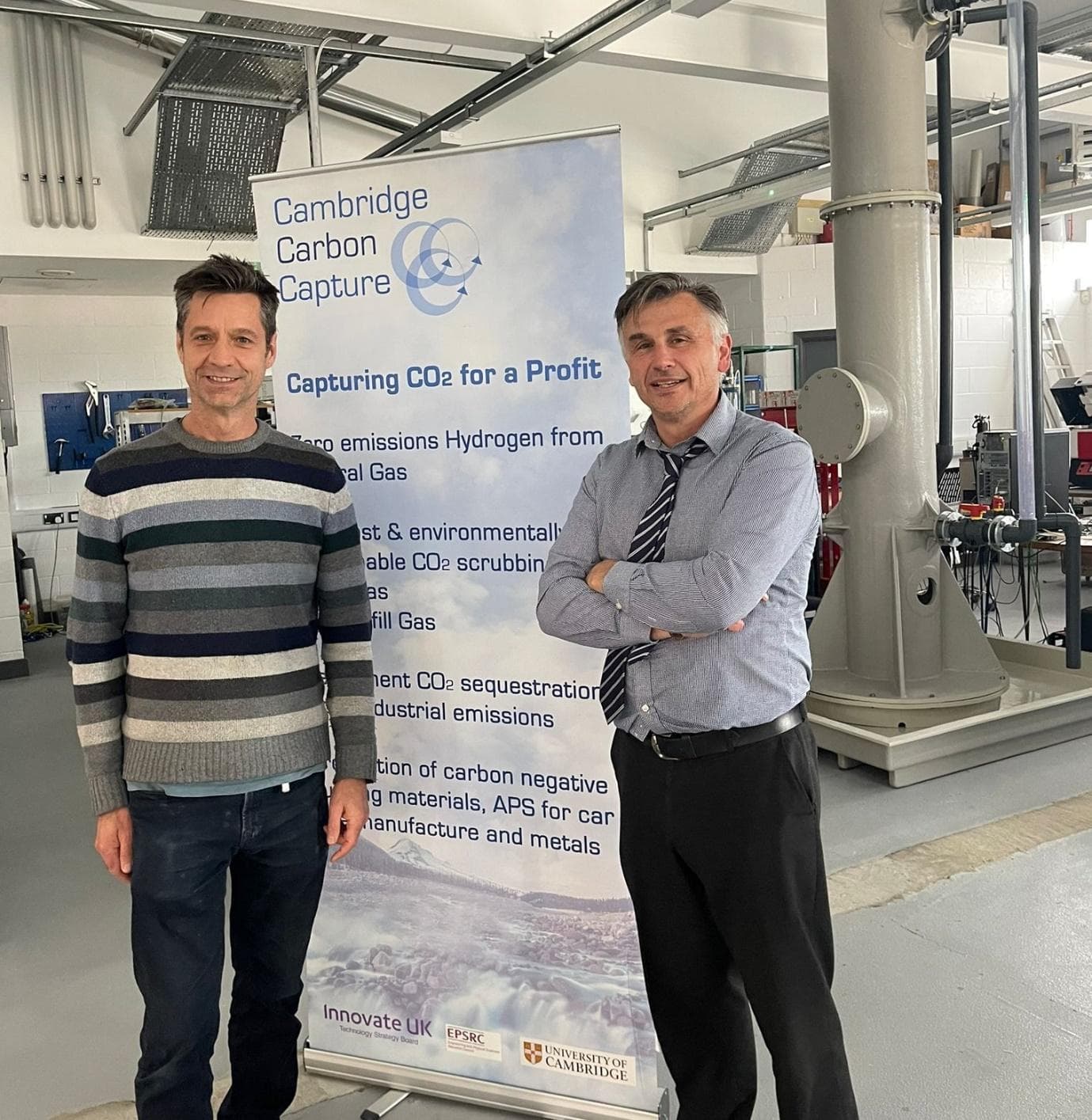Low Carbon? Zero Carbon? Avioxx Aims for Carbon Negative SAF

Pictured from left to right: Michael Evans and Steve Wilkinson
On Thursday 1st June 2023, Avioxx’s Chief Technology Officer, Dr Steve Wilkinson visited the Cambridge Carbon Capture (CCC) labs at the Allia Future Business Centre in Cambridge.
CCC is led by CEO and serial clean tech entrepreneur, Michael Evans who says “We have shown that capturing CO2 using our process can be a surprisingly profitable business because we co-produce several high value materials along the way”. This is music to the ears of Dr Wilkinson because, unlike the competition, Avioxx is planning to capture CO2 during the production of sustainable aviation fuel (SAF) from waste streams. Using its patented process that uses pure oxygen rather than air for gasification, the company is able to produce CO2 that is undiluted by nitrogen and therefore much easier to capture.
According to Dr Wilkinson, “The syngas produced by gasification usually has too much carbon (in the form of carbon monoxide and carbon dioxide) and too little hydrogen for the downstream Fischer-Tropsch synthesis reactor. Whereas our competitors can only solve this problem by adding more hydrogen we can instead remove some of the carbon by capturing some of the undiluted CO2”.
Avioxx proposes to focus on waste destined for incineration (WDI) (e.g. clinical waste) and to capture enough carbon to make their entire process carbon negative. “The amount of captured carbon will be greater than the carbon emitted by the operation of the process” explains Dr Wilkinson, “So, for WDI, which is going to be burnt anyway, less CO2 is emitted to the atmosphere by making the SAF and burning it in jet engines than would have been the case for simple incineration”
Will Avioxx be choosing Cambridge Carbon Capture’s proven technology to make their entire process carbon negative? Quite possibly. One thing, however, is more certain: getting paid to take waste and using it as a feedstock to make SAF and other valuable co-products looks like a compelling business case.